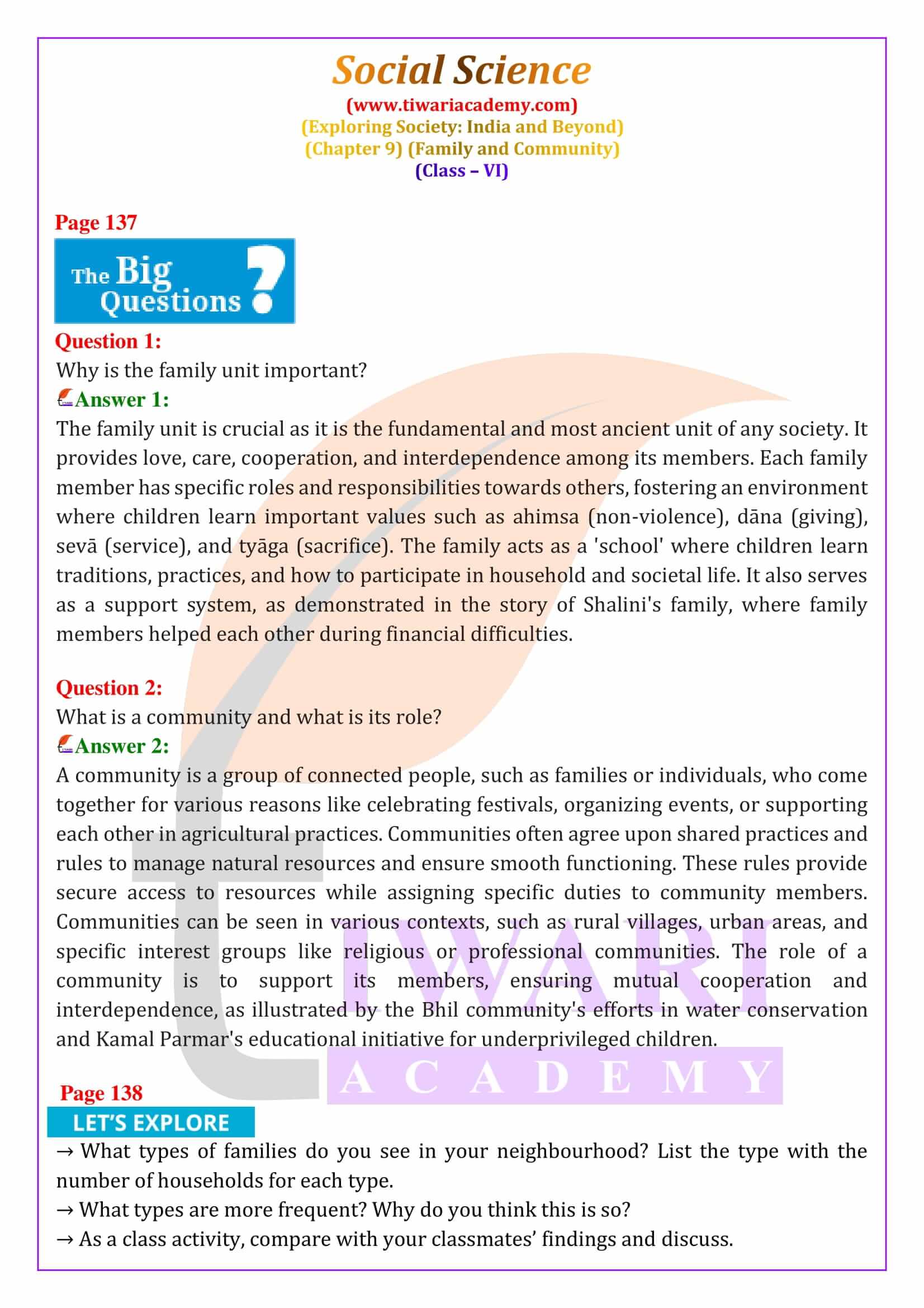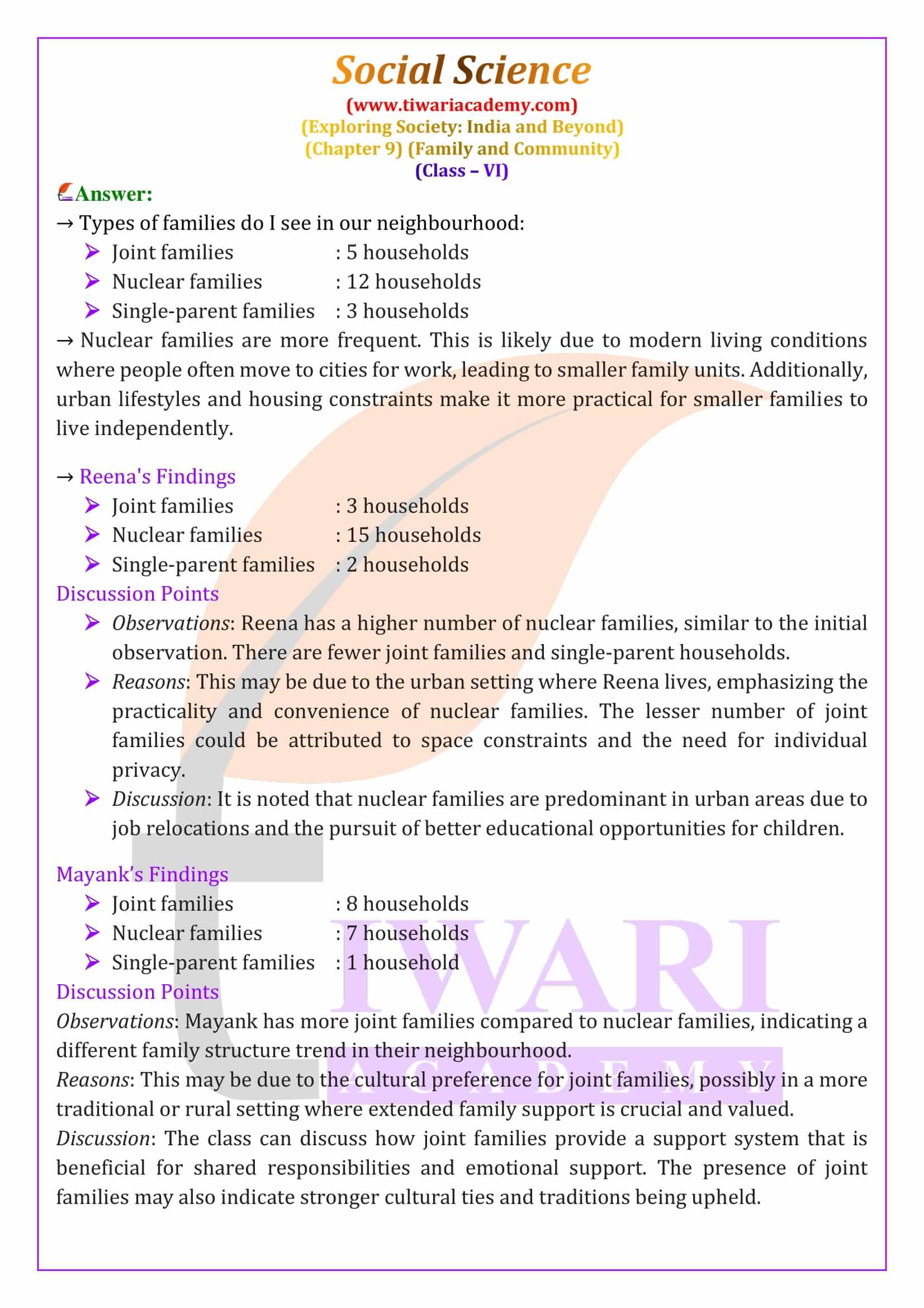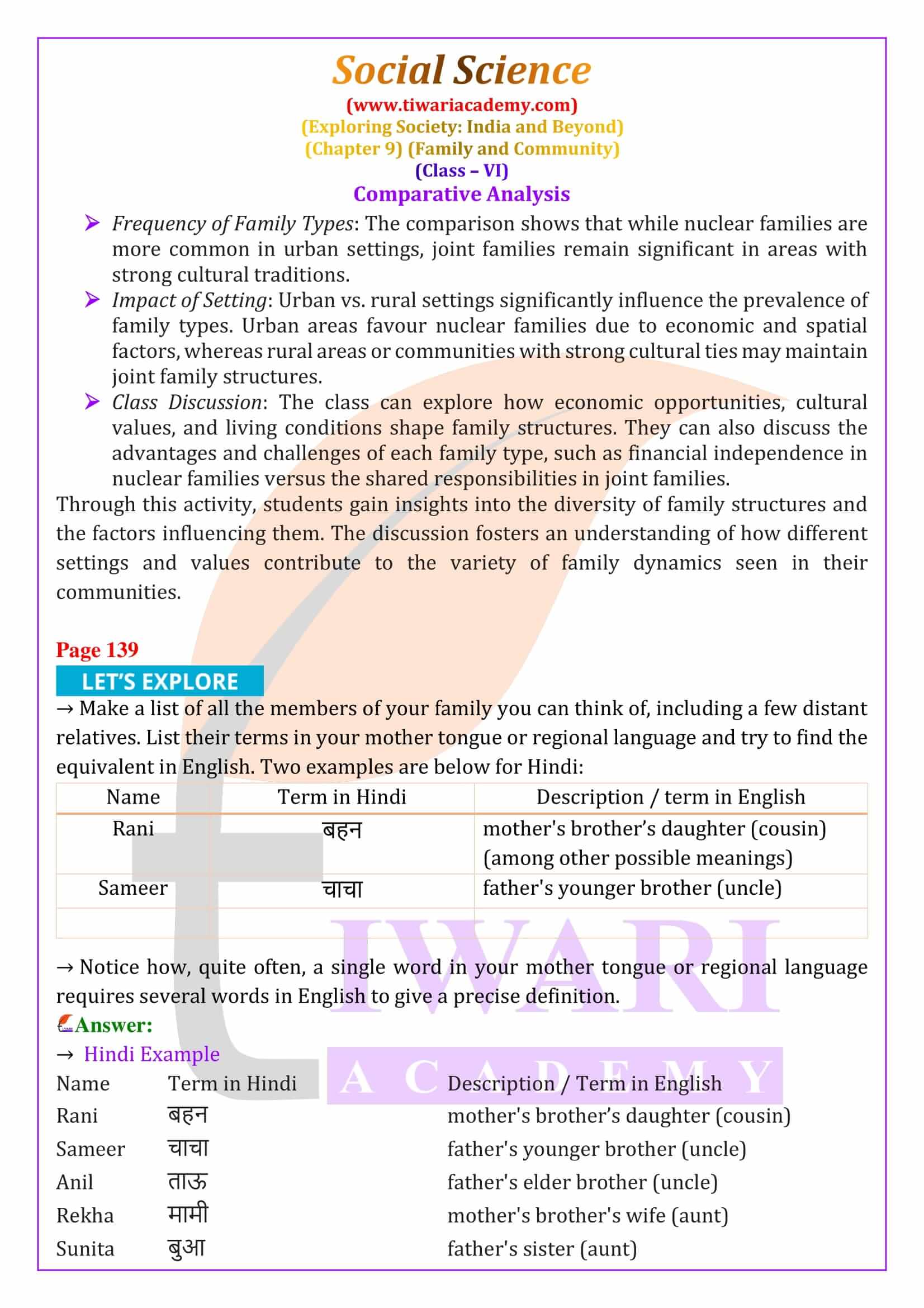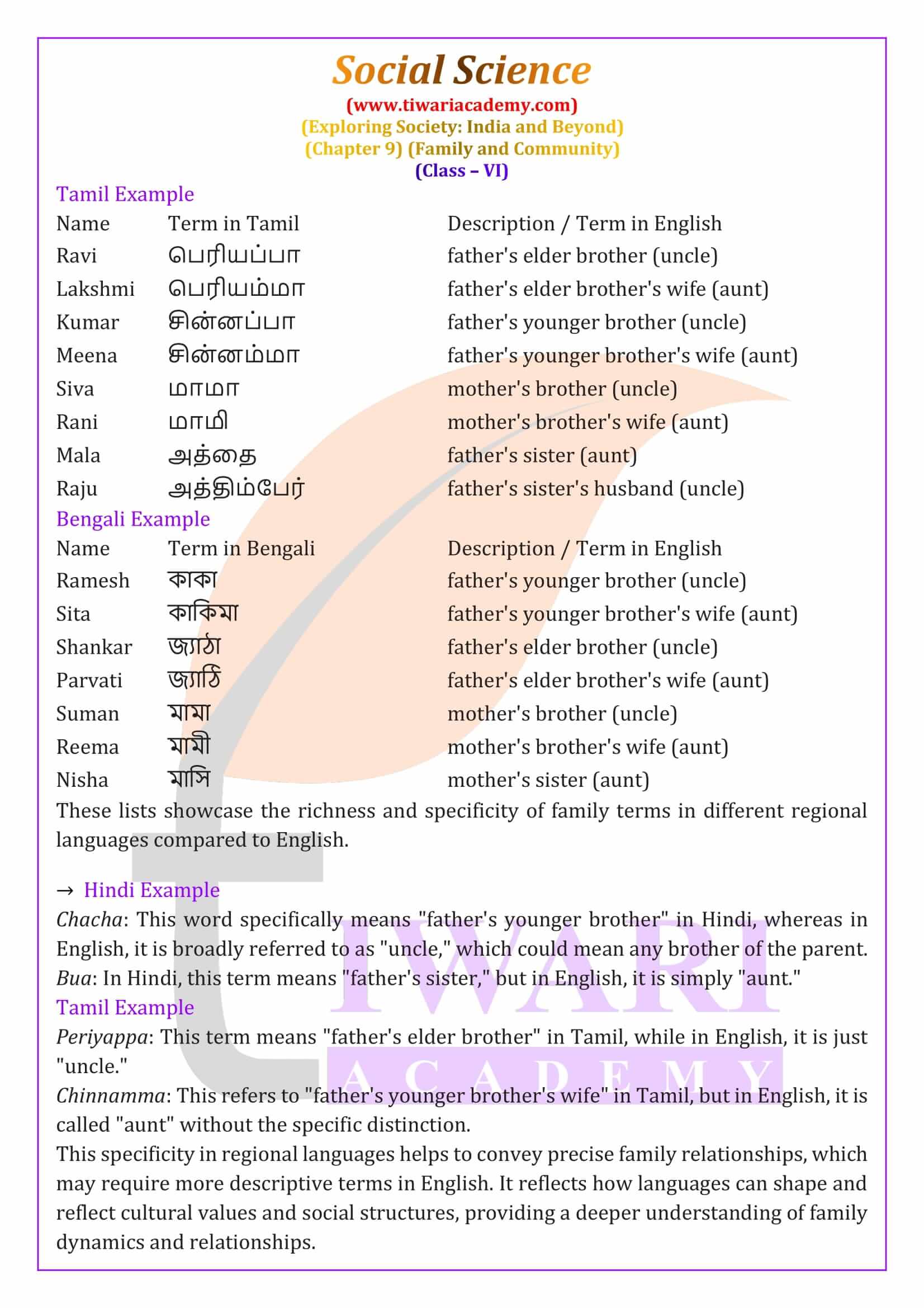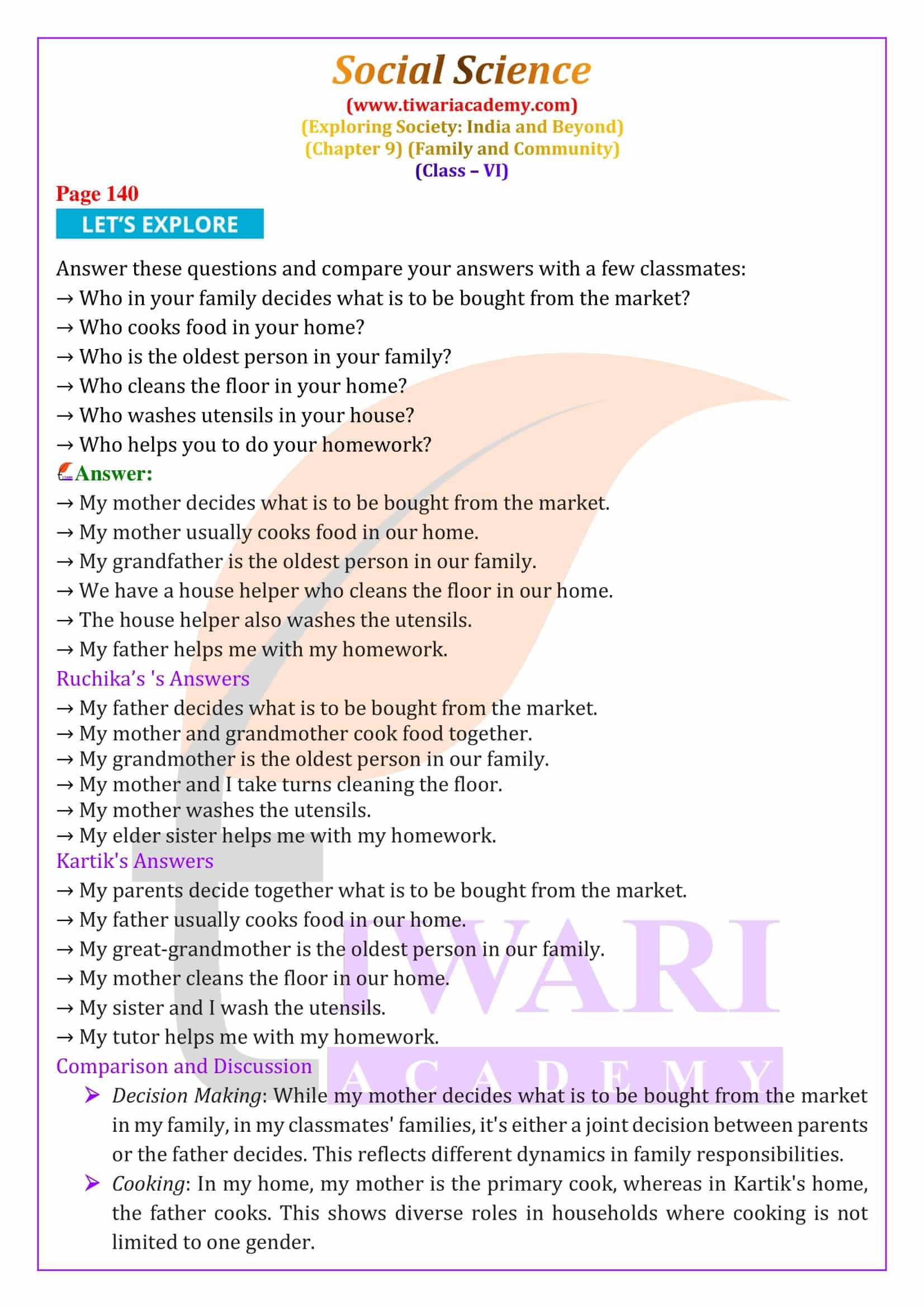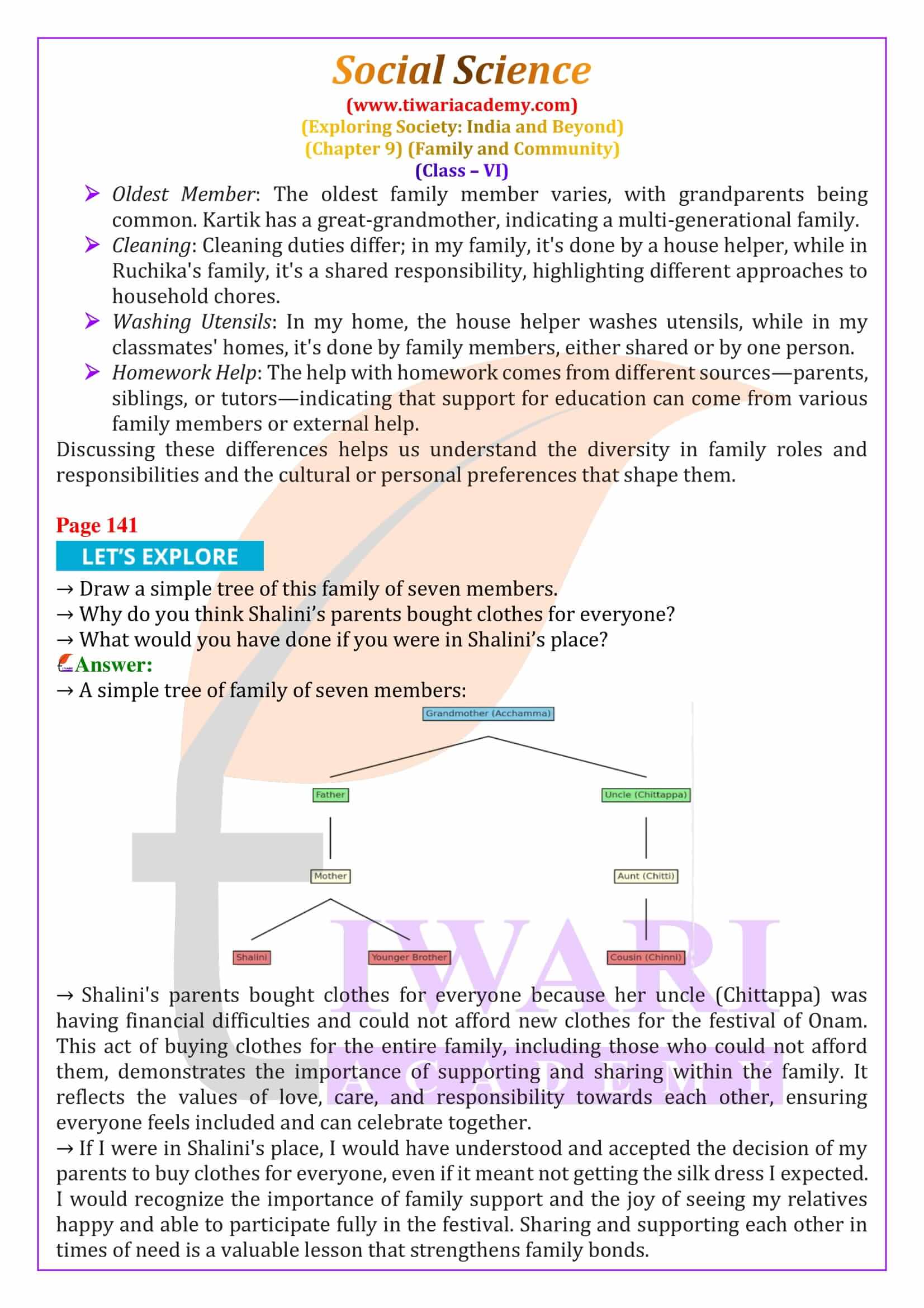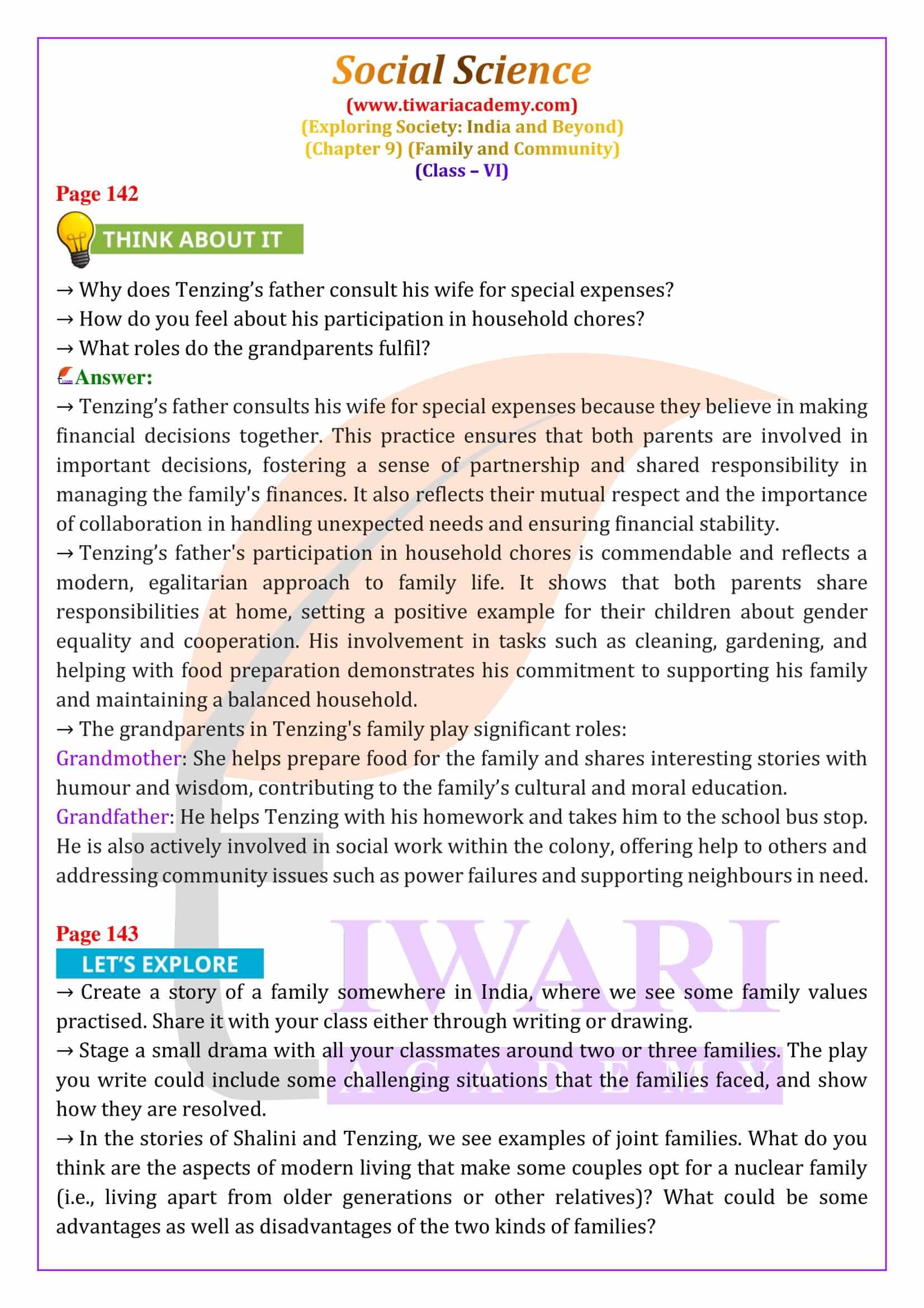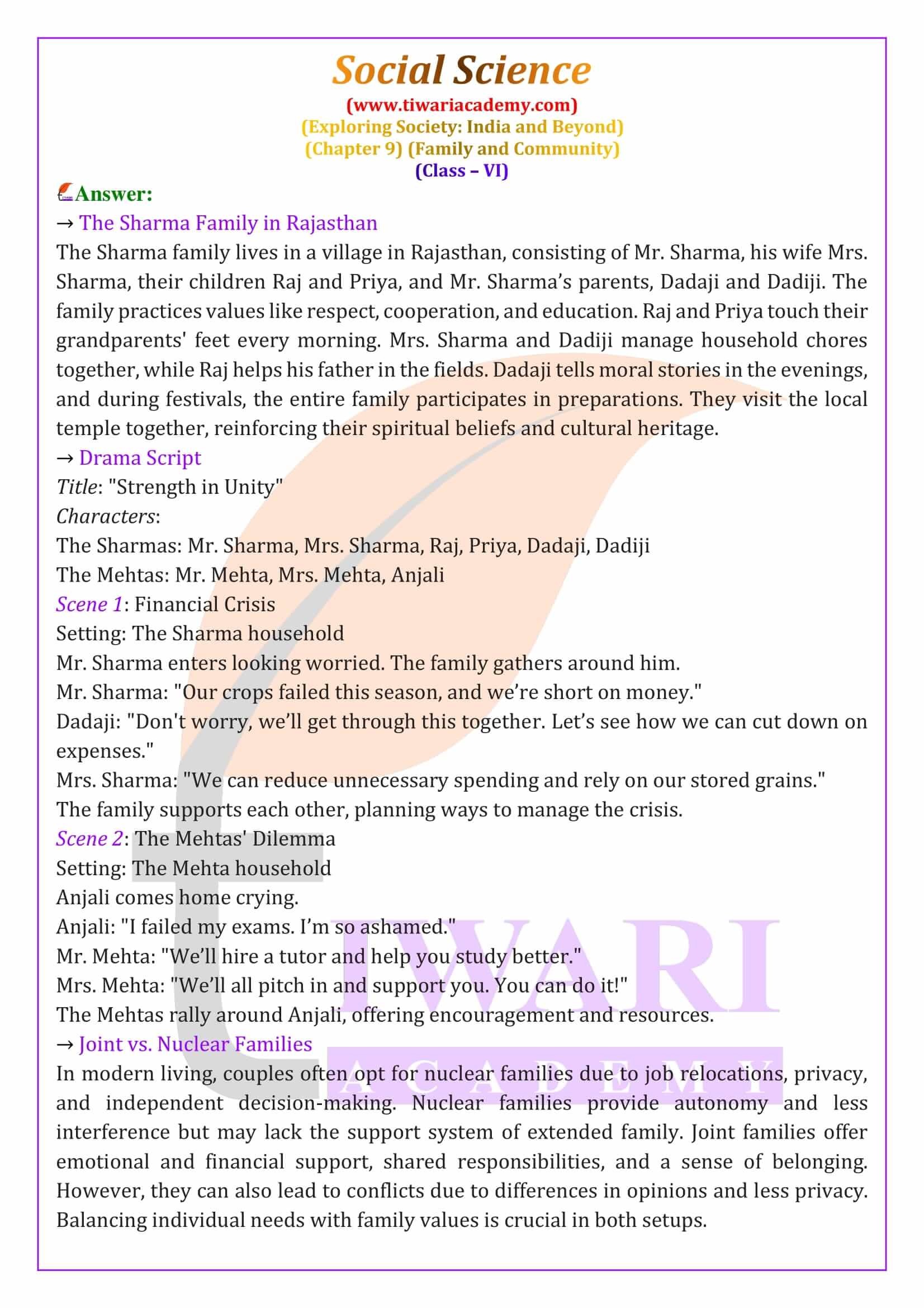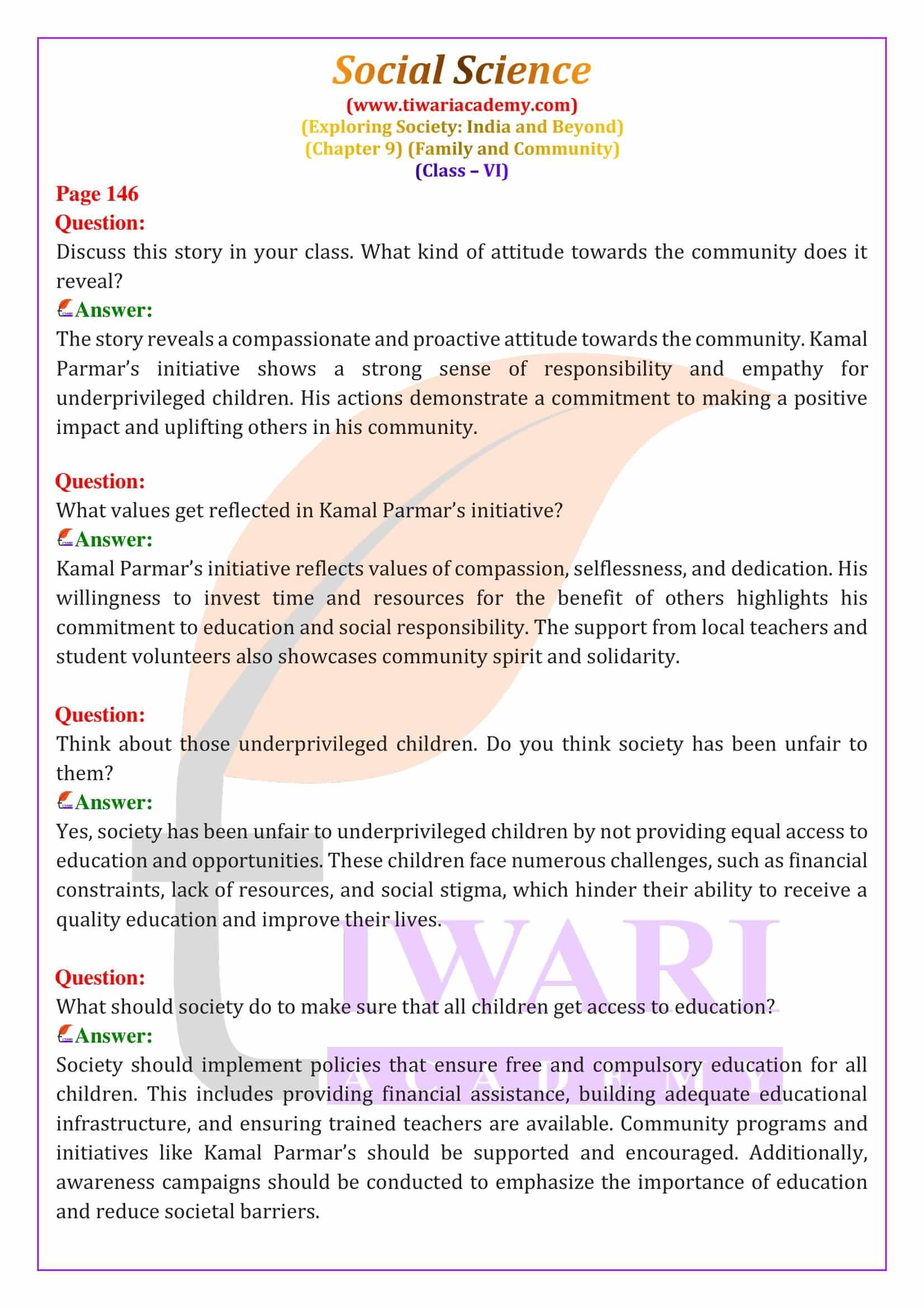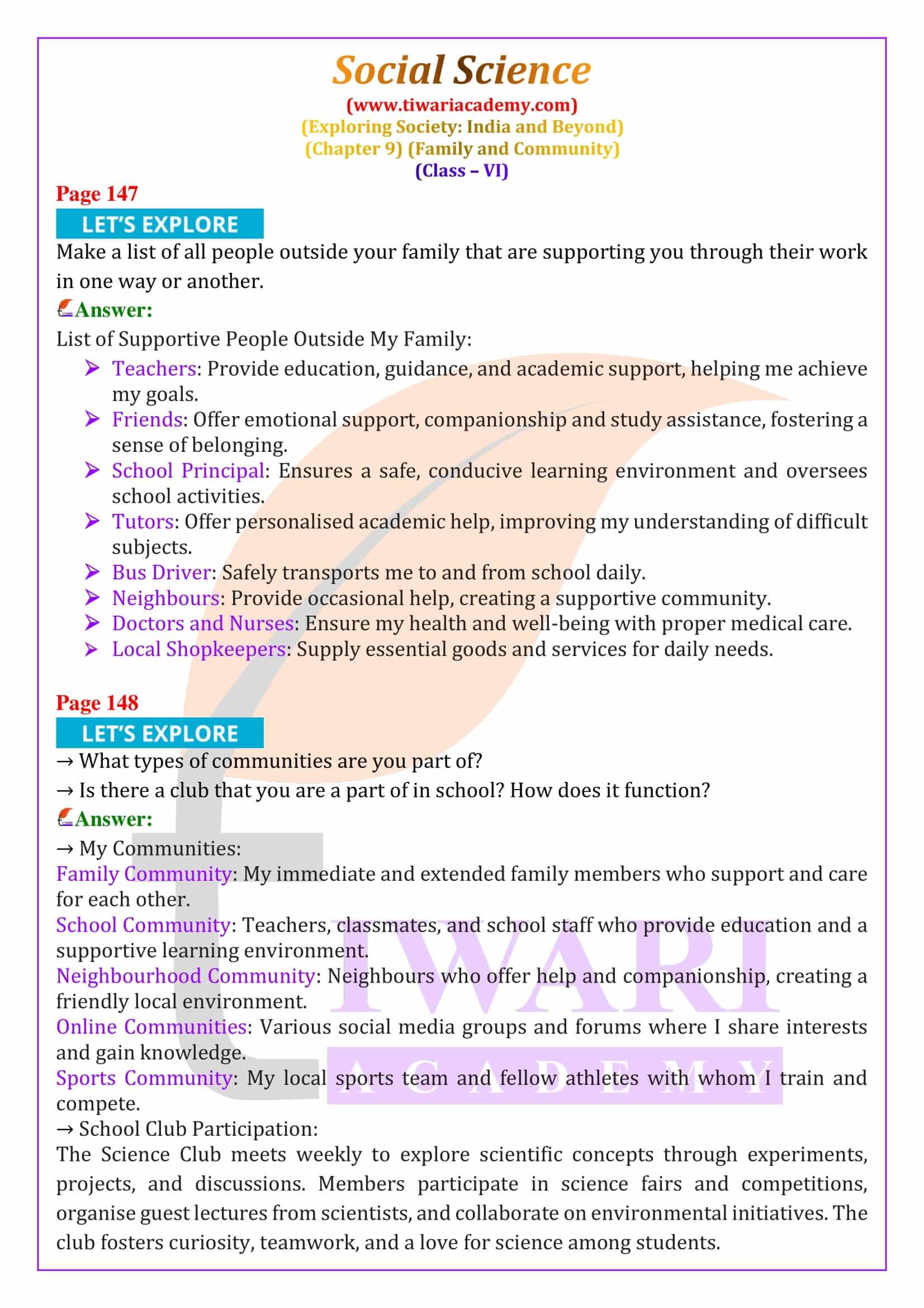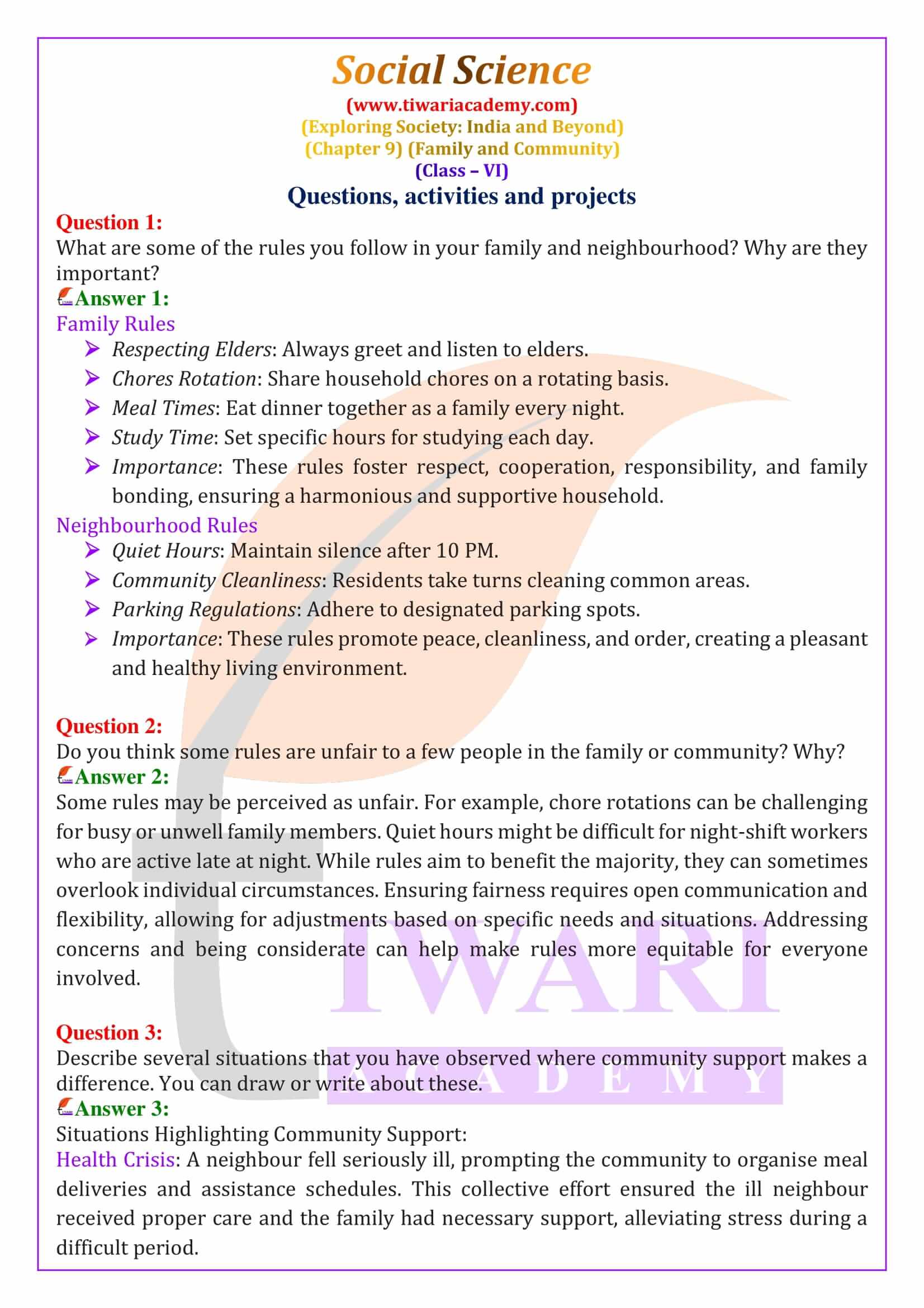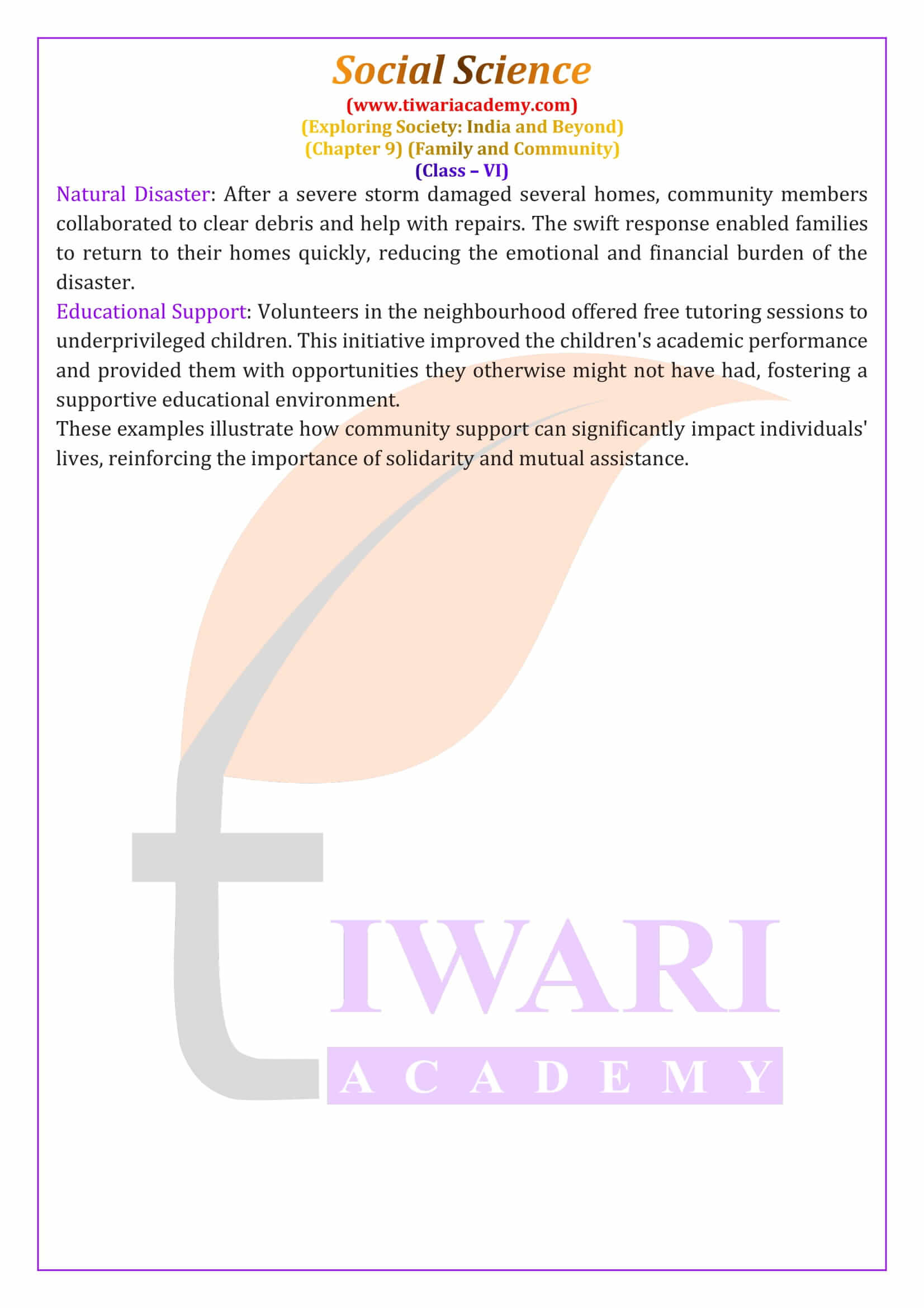NCERT Solutions for Class 6 Social Science Chapter 9 Family and Community for academic year 2025-26 are give free to use. Get here the Question Answers of Class 6 Social Science Chapter 9 Exploring Society – India and Beyond India Beyond in Civics (Political Science) Section in simple words to prepare exercises.
Class 6 Social Science Chapter 9 Family and Community Question Answers
Family and Community: The Importance of Family
Family is the most basic and ancient unit of society. It is where everyone learns essential values and traditions. In Indian society, families can be joint or nuclear. A joint family includes grandparents, parents, uncles, aunts, and cousins living together, while a nuclear family is limited to parents and their children. Family relationships are crucial as they involve love, care, cooperation, and interdependence. In a family, each person has a role and responsibility. For instance, parents take care of their children, and as children grow, they start helping their parents and other family members.
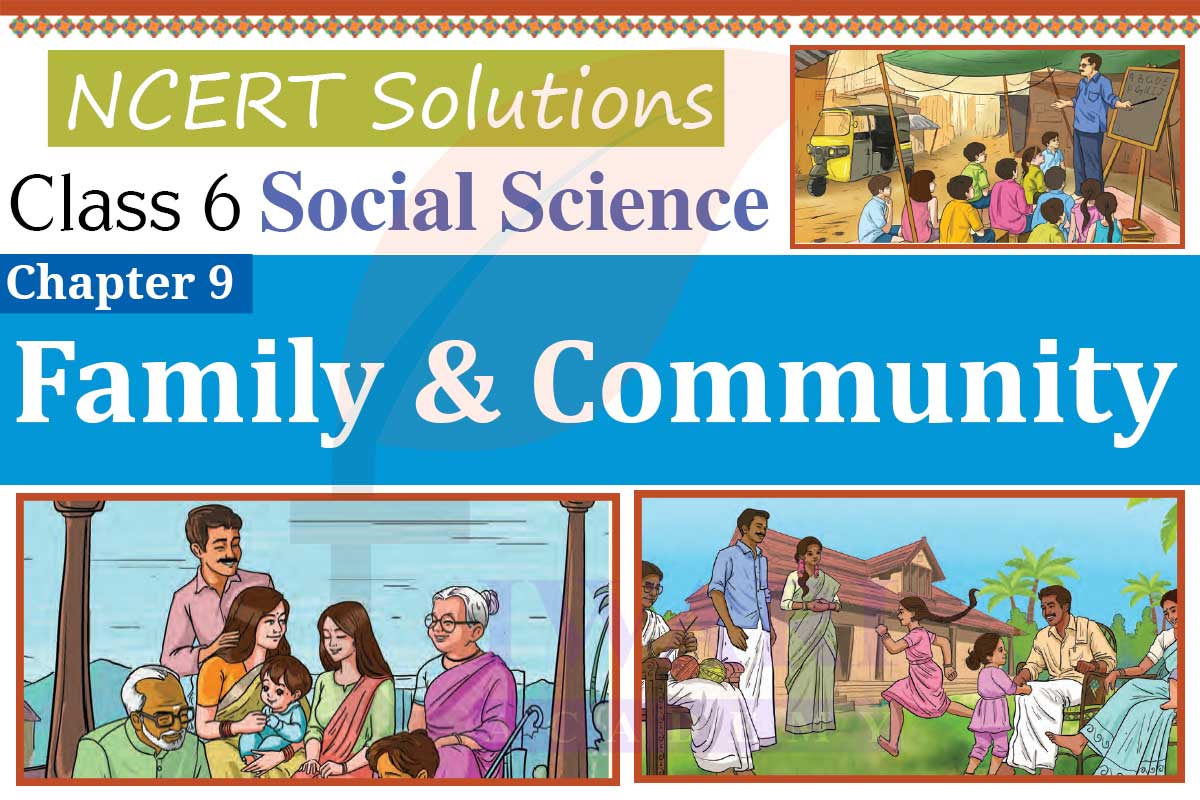
Roles and Responsibilities in the Family
In a family, everyone has specific roles and responsibilities. These roles are often based on cooperation, which means working together. For example, parents provide for the family and ensure their children grow up to be happy and responsible individuals. As children grow older, they take on more responsibilities, like helping with household chores. Through these daily activities, children learn important values such as honesty, sharing, and helping others. The family also serves as a place where children learn traditions and practices that have been passed down through generations.
Family Support and Sacrifice
Families often support each other in times of need. A story from Kerala illustrates this well. In this story, Shalini’s family buys clothes for her uncle’s family, who are facing financial difficulties, even though it means Shalini has to settle for a simpler dress. This act of sacrifice and support is an example of how families share what they have and look out for each other. The story teaches that being part of a family means sometimes giving up personal desires for the greater good of the family.
The Role of Grandparents and Family Values
Grandparents often play an essential role in the family by sharing wisdom, helping with homework, and participating in community activities. For instance, in another story from Meghalaya, Tenzing’s grandparents contribute significantly to the household. His grandmother tells stories filled with wisdom, and his grandfather is actively involved in social work, helping others in their community. This shows that grandparents are not just caretakers but also role models who teach valuable life lessons and contribute to the well-being of the entire family.
Understanding Community
Families are connected not just among themselves but also with other families and individuals around them, forming what is known as a community. A community is a group of people who come together for various reasons, such as celebrating festivals, helping each other with work, or supporting one another in times of crisis. For example, in rural areas, communities often work together on agricultural tasks like sowing and harvesting. Communities have rules, often unwritten, that help them function smoothly and ensure everyone has access to shared resources like water and land.
Real-Life Examples of Community Support
Communities often come together to help each other during difficult times. For example, during a water crisis in Madhya Pradesh, the Bhil community planted trees and dug trenches to conserve rainwater, demonstrating their duty towards the environment. Similarly, during the Chennai floods of 2015, various groups provided food and support to those affected. These examples highlight the importance of community support and how people work together to overcome challenges. Communities, whether in rural or urban areas, are essential for collective well-being.
Modern Communities and their Interdependence
In modern times, new types of communities have emerged, such as Residents’ Welfare Associations in urban areas. These communities create rules for things like waste management and cleanliness, and people work together to maintain their living environment. Communities are interdependent, meaning they rely on each other for various needs. For example, urban communities depend on traders for supplies and municipal workers for services. This interdependence shows that in our complex societies, everyone plays a role in supporting each other, making communities vital for social harmony and cooperation.

